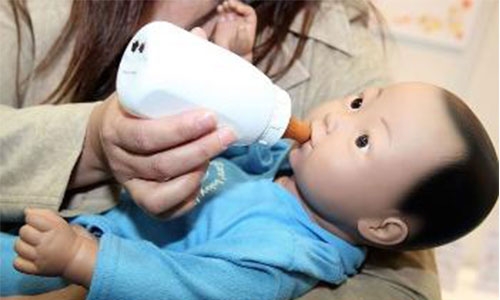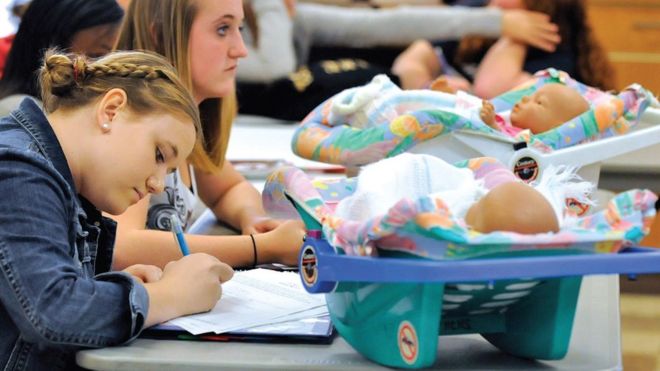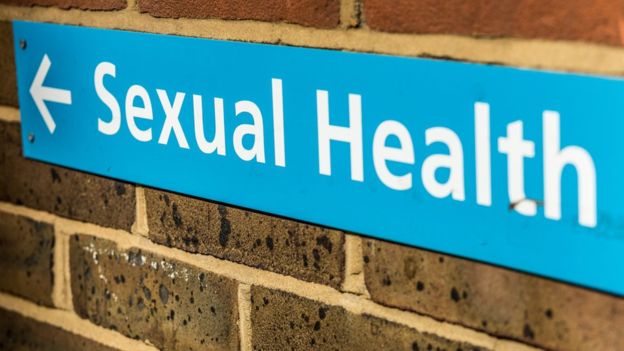Concerns raised over teenage pregnancy 'magic dolls'
Teenage pregnancy prevention programmes which use "magic dolls" to simulate the needs of a new baby do not work, according to astudy in The Lancet.
More than 1,000 teenage girls who took part in programmes in Western Australia were more likely to become pregnant than girls who did not take part, researchers found.
The baby simulator cries when it needs to be fed, burped or changed.
Similar programmes are used in schools in 89 countries, including the US.
Girls enrolled in the Virtual Infant Parenting programme in more than 50 schools in Western Australia were taught about sexual health, contraception and the financial costs of having a baby.
The programme also included watching a video of teenage mothers talking about their experiences and caring for a lifelike model of a baby over the weekend.
But when the girls were tracked up to the age of 20, 8% had given birth at least once and 9% had had an abortion.
This compared to a figure of 4% giving birth among girls who did not take part in the baby simulator programme and 6% having an abortion.
Why did the baby simulator programme not work in Australia?
- It didn't focus on fathers, or teenage boys, who have an equal part to play in early pregnancies
- Secondary school age is too late to start educating vulnerable children about teenage pregnancy prevention
- The programme didn't emphasise the negatives of being a teenage parent enough
- A simulator cannot really convey what looking after a real baby is like
These are the conclusions of Julie Quinlivan, from the Institute for Health Research, University of Notre Dame Australia, writing about the results of the study in The Lancet.
She said prevention programmes needed to start when children were much younger, even in infancy, and the focus should be on educating vulnerable children from deprived backgrounds who, research shows, are more likely to become parents at a premature age.
Are 'dolls' used as part of UK teenage pregnancy prevention?
The FPA (formerly Family Planning Association) and sexual health charity Brook said "dolls" were not routinely used in the UK as part of teenage pregnancy prevention programmes.
Neither organisation thought they were a particularly useful tool because the dolls just could not show young people the reality of how much hard work and commitment was involved in being a parent.
What works in the UK?
Targeted education programmes and easier access to contraception have played a huge part in bringing down teenage pregnancy rates in England Wales, Scotland and Northern Ireland since the late 90s.
Between 1998 and 2013 there was a fall of 48% in conception rates amongst under-18s from 47.1 per 1,000 to 24.5 per 1,000.
Some say a change in teenage behaviour - less drinking by teenagers leading to less unprotected sex - has also helped to reduce teenage pregnancies.
And the rise in popularity of socialising online may also have had an impact.
But sex education is not compulsory in all schools which means not all pupils receive the same access to information and not all areas of the country offer the same sexual health services.
The FPA says maintaining the downward trend could prove a challenge without more funding.
How does the UK compare to the rest of Europe?
Despite success in recent years, the UK still sits near the top of the European league table of teenage birth rates.
In contrast, the Netherlands, Sweden and Switzerland have among the lowest teenage conception rates of all developed countries - roughly one-fifth of that in the United Kingdom.
The United States has had the highest teenage birth rate in the developed world for a long time, although it has been falling almost continuously over the past 20 years.
Related Posts



